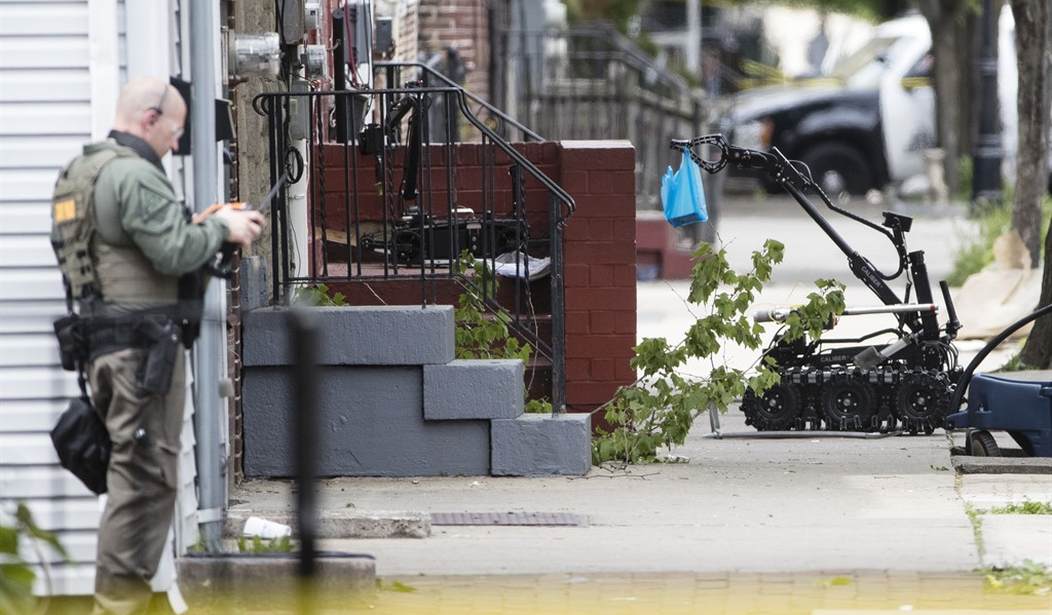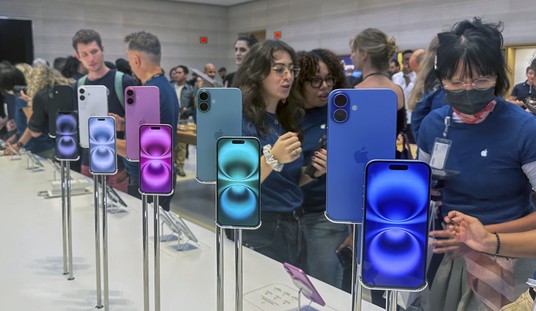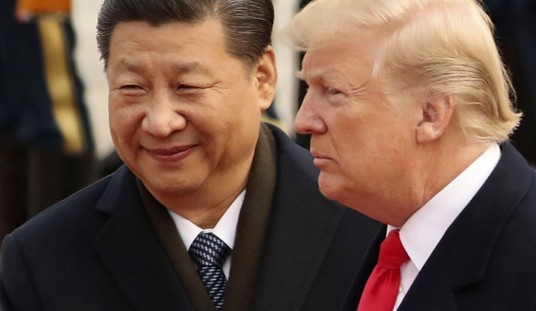San Francisco has voted to allow the use of lethal robots in certain extreme cases. There are of course plenty of opponents worried about where this will lead but the idea is that this would only be used in certain extreme situations.
Supervisors in San Francisco voted Tuesday to give city police the ability to use potentially lethal, remote-controlled robots in emergency situations — following an emotionally charged debate that reflected divisions on the politically liberal board over support for law enforcement…
The San Francisco Police Department said it does not have pre-armed robots and has no plans to arm robots with guns. But the department could deploy robots equipped with explosive charges “to contact, incapacitate, or disorient violent, armed, or dangerous suspect” when lives are at stake, SFPD spokesperson Allison Maxie said in a statement.
“Robots equipped in this manner would only be used in extreme circumstances to save or prevent further loss of innocent lives,” she said.
Supervisors amended the proposal Tuesday to specify that officers could use robots only after using alternative force or de-escalation tactics, or concluding they would not be able to subdue the suspect through those alternative means. Only a limited number of high-ranking officers could authorize use of robots as a deadly force option.
All of the groups against this sound like they expect it to be the equivalent of unleashing the police on minority communities.
Ahead of yesterday’s vote, Brian Cox, director of the Integrity Unit at the San Francisco Public Defender’s Office, called the change antithetical to the progressive values the city has long stood for and urged supervisors to reject SFPD’s proposal. “This is a false choice, predicated on fearmongering and a desire to write their own rules,” he said in a letter to the board of supervisors.
Cox said lethal robots on SF streets could cause great harm, worsened by “SFPD’s long history of using excessive force—particularly against people of color.” The American Civil Liberties Union, the Electronic Frontier Foundation, and the Lawyers Committee for Civil Rights have also voiced opposition to the policy.
At present, San Francisco only has 12 working police robots and none of them are equipped with weapons. But that doesn’t mean there couldn’t be situations in the future where this might be the best option. One of the specters hanging over this decision is the police use of force in Philadelphia in 1985 against the black power commune known as MOVE.
On Monday, May 13, 1985, nearly 500 police officers, along with city manager Leo Brooks, arrived in force and attempted to clear the building and execute the arrest warrants. Water and electricity were shut off in order to force MOVE members out of the house. Commissioner Sambor read a long speech addressed to MOVE members that started with, “Attention MOVE: This is America. You have to abide by the laws of the United States.” When the MOVE members did not respond, the police decided to forcibly remove the people who remained in house, which consisted of seven adults and six children.
There was an armed standoff with police, who threw tear gas canisters at the building. The MOVE members fired at them, and a gunfight with semi-automatic and automatic firearms ensued. Police used more than 10,000 rounds of ammunition before Commissioner Sambor ordered that the compound be bombed. From a Pennsylvania State Police helicopter, Philadelphia Police Department Lt. Frank Powell proceeded to drop two 1.5-pound (0.75 kg) bombs (which the police referred to as “entry devices”) made of Tovex, a dynamite substitute, combined with two pounds of FBI-supplied C-4, targeting a fortified, bunker-like cubicle on the roof of the house.
The ensuing fire killed 11 of the people in the house, six adults and five children: John Africa, Rhonda Africa, Theresa Africa, Frank Africa, Conrad Africa, Tree Africa, Delisha Africa, Netta Africa, Little Phil Africa, Tomaso Africa, and Raymond Africa. Ramona Africa, one of the two MOVE survivors from the house, said that police fired at those trying to escape.
Since then the use of explosives by police has been something they are hesitant to do. But it has been done. You may recall the Dallas mass shooting of police officers by Micah Xavier Johnson in 2016. Johnson killed 5 officers and wounded 11 other people. After a standoff that lasted hours, that incident finally ended when police used a C-4 bomb strapped to a police robot.
Johnson shouted “Black supremacy! Black liberation!” and began firing on police officers when they initially cornered him in the hallway. As the officers began asking Johnson questions, Johnson said he would speak to Black police officers only and repeatedly referred to himself as “X”. When the negotiator, Sgt. Gordon, told Johnson that he was Black, Johnson initially responded, “No way.” Johnson told Sgt. Gordon that he served overseas in the military. At one point, as negotiations deteriorated, Johnson told Sgt. Gordon, “The talking is over. It’s time for a revolution, brother. If you are my brother, turn your weapon on those behind you.”
Johnson said that he had acted alone and was not part of any group. According to Chief Brown, Johnson appeared delusional during his standoff; “We had negotiated with him for about two hours, and he just basically lied to us, playing games, laughing at us, singing, asking how many did he get and that he wanted to kill some more.” However, Sgt. Gordon indicated in an interview that the shooter “wasn’t delusional” and that “he was very lucid, seemed to be very sane and very in control”….
Senior Corporal Jeremy Borchardt and others ultimately arrived at the idea to use a bomb disposal remote control vehicle armed with about 1 pound (0.45 kilograms) of C-4 explosive. The plan was to move the robot to a point against a wall facing Johnson and then detonate the explosives. The device exploded as intended at approximately 2:30 a.m., killing Johnson immediately. It was the first time that explosives strapped to a robot had been used in American domestic law enforcement. Although its arm sustained damage in the blast, the robot was still functional.
Aside from the Dallas shooting, the incident that immediately came to my mind was the Uvalde school shooting. Police spent nearly an hour an a half doing nothing, pretty clearly because they were afraid to confront the shooter as their training told them to do. Maybe if they’d had an armed robot to send in (with a shotgun instead of a bomb) they would have moved a bit more quickly to end it. In any case, I think the lesson from that incident was that just because police have been trained to confront an active shooter doesn’t mean they’ll do it. Even when you have hundreds of armed officers on hand, the fear for their own safety can still override an endless amount of training. Robots at least have no fear to hold them back when victim’s lives are on the line.







Join the conversation as a VIP Member